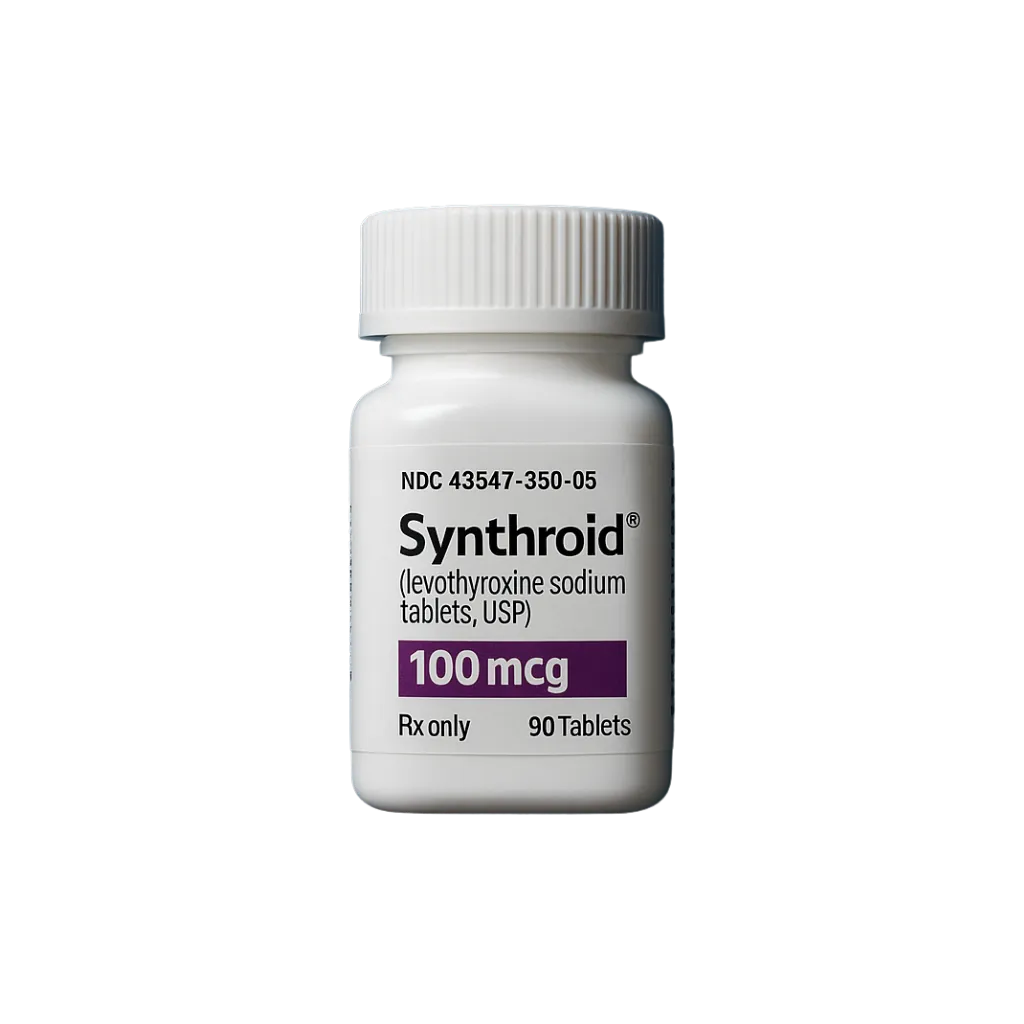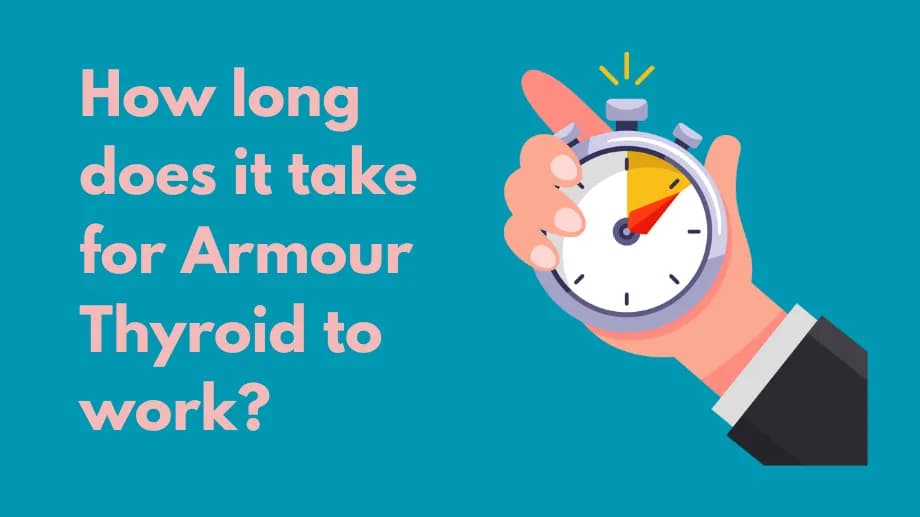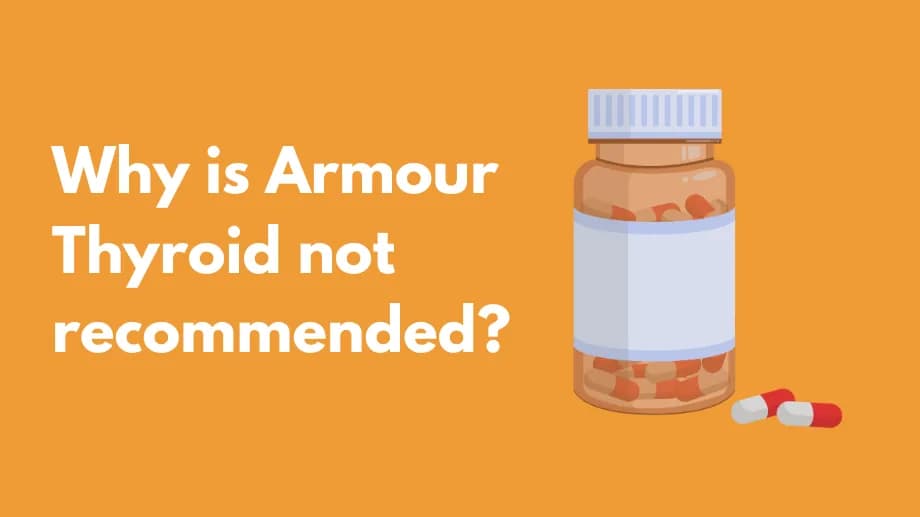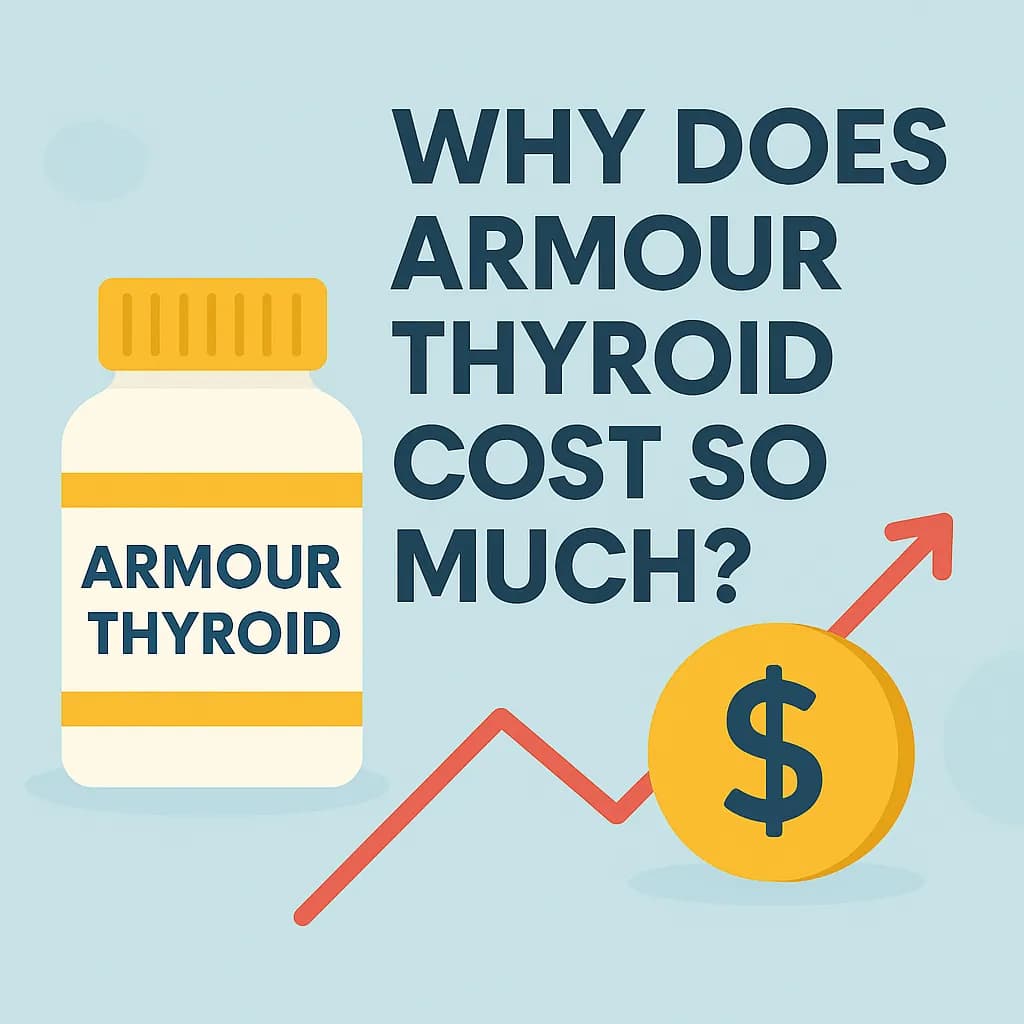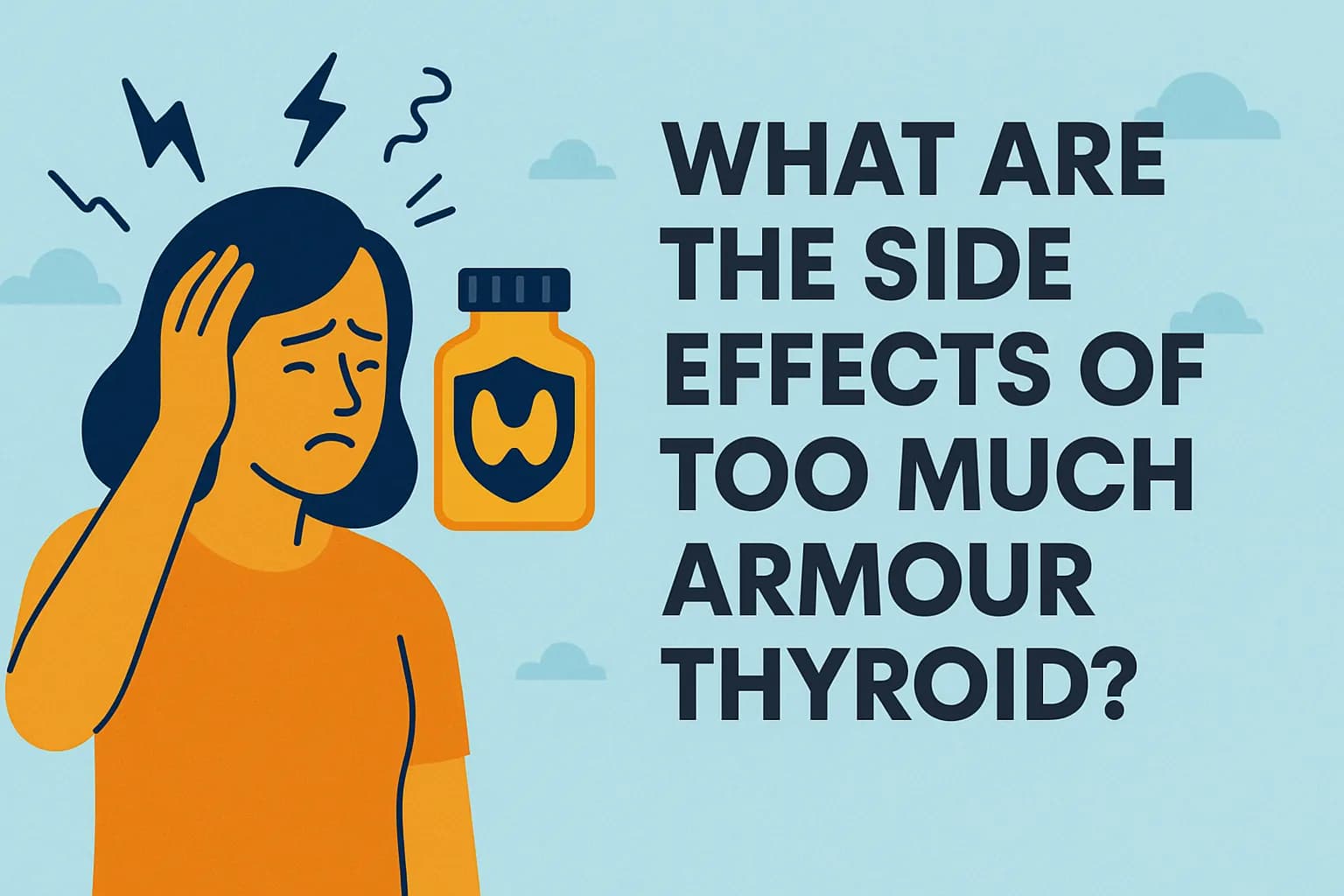Can Armour Thyroid cause weight gain?
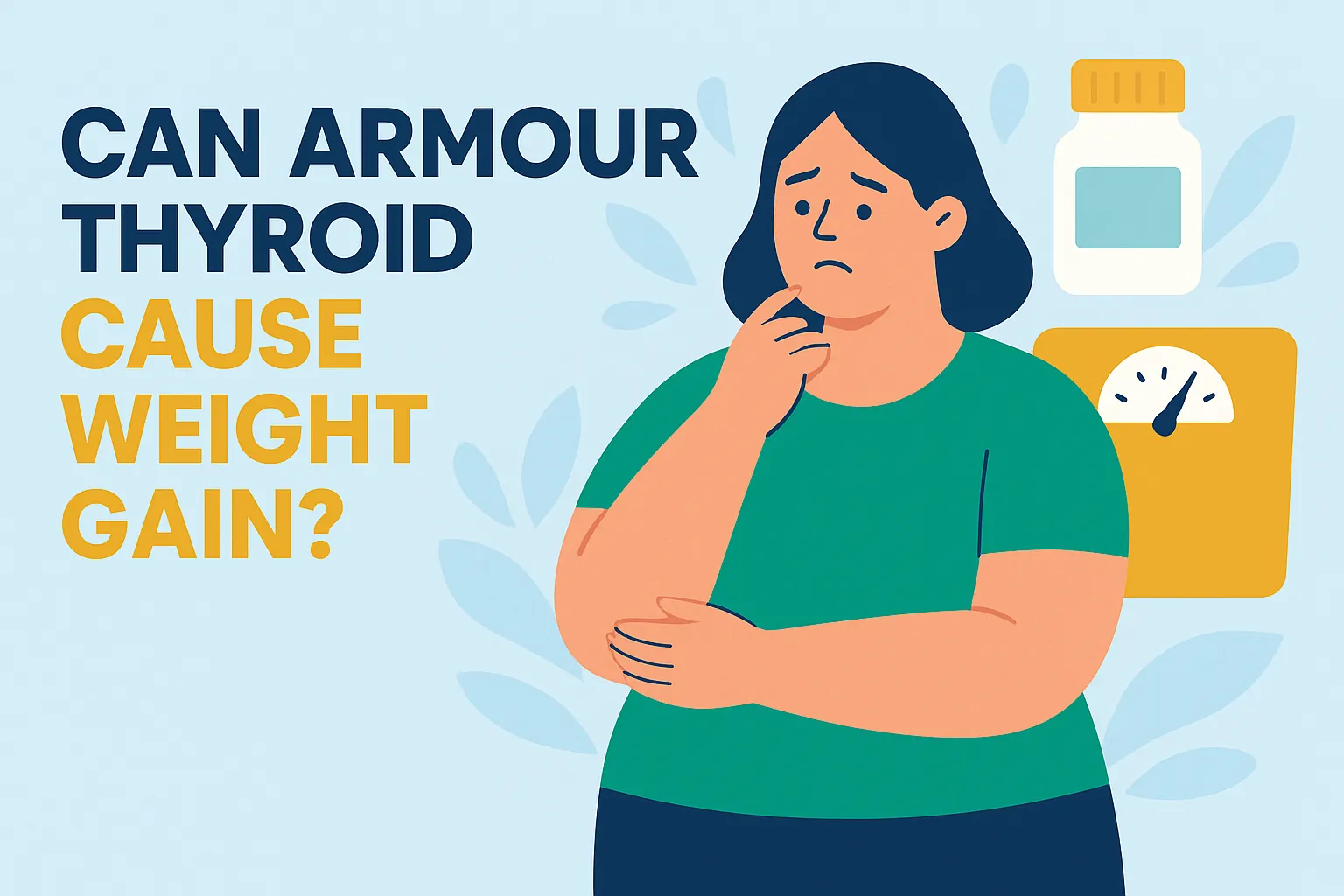
Hypothyroidism (low thyroid levels) and weight gain often go hand in hand. As a matter of fact, weight gain is one of the more common symptoms of hypothyroidism. Your thyroid gland helps control your metabolism and regulates how quickly you store and use energy. It also plays a major role in your growth and development. If your thyroid gland is not making enough thyroid hormones, you will have a slower metabolism, making it harder for you to burn energy. In addition, low thyroid hormone levels can cause fatigue and joint pain, which can take away your motivation to exercise. Hypothyroidism may also increase how much salt and water your body retains which can lead to an increase in weight.
There is no clear data on how much weight people gain that have low levels of thyroid hormones or how much weight loss occurs after beginning a thyroid medication. It is estimated that half of those with an underactive thyroid will gain some weight. Most people typically gain between 5 to 10 pounds.
Taking a thyroid hormone replacement medication such as Armour Thyroid (desiccated thyroid extract), Synthroid (levothyroxine), or Cytomel (liothyronine) will not typically cause you to gain weight. If you take Armour Thyroid to treat your low thyroid levels, it may actually keep you from gaining more weight. However, it may not help you lose the weight you’ve already gained. This can depend on other factors such as poor diet and sleep, lack of physical activity, and hormonal changes (menopause).
What are the main causes of hypothyroidism?
- Hashimoto’s disease: This thyroid disease is an autoimmune disorder and is the most common cause of hypothyroidism. With this disease, your immune system attacks your thyroid gland. This inflames your thyroid to where it doesn’t make enough thyroid hormones.
- Thyroiditis: With this thyroid condition, you have inflammation in your thyroid, which can lead to decreased thyroid function and low thyroid levels.
- Congenital hypothyroidism: Some babies are born with a thyroid gland that does not fully develop or work properly. If left untreated, this can cause your baby to not grow as expected as well as learning disabilities.
- Removal of part or all of your thyroid gland: The surgical removal of part or all of your thyroid gland can cause you to have hypothyroidism. If you only have part of it removed, your thyroid may still produce enough hormones. When you have all of it taken, you will always have hypothyroidism.
- Radiation therapy to your thyroid: If you have radiation treatment to your thyroid, you will most likely develop hypothyroidism. Some people who have neck or head cancers treated may also develop this if the thyroid is included in the radiation treatment.
- Medications: Some medications can affect your thyroid function and cause hypothyroidism, including some:
- Heart medications
- Cancer medications
- Bipolar disorder medications
Why would you need Armour Thyroid?
Armour Thyroid is a natural product that contains a combination of the triiodothyronine (T3) and thyroxine (T4) thyroid hormones made by your thyroid gland. This medication became available before the Food and Drug Administration (FDA) started its drug approval process so it is not FDA-approved. However, your healthcare provider may prescribe it to:
- Treat hypothyroidism (low thyroid hormone levels). Symptoms of this condition include fatigue, muscle aches, constipation, weight gain, slow heartbeat, sensitivity to cold, and dry skin.
- Lower your thyroid-stimulating hormone (TSH) levels if you have other thyroid problems like thyroid nodules, thyroid cancer, or goiters.
If you have any of these conditions, you should speak to a healthcare professional about all treatment options that may be available.
Shop Medications
What are the symptoms of too much Armour Thyroid?
Side effects typically only occur when taking Armour Thyroid if your thyroid hormones levels get too high. Most are mild and are similar to those with hyperthyroidism but some people can experience serious side effects. Some common side effects of Armour Thyroid include:
- Increased heart rate, pulse or heart palpitations
- Anxiety or nervousness
- Chest pain
- Tremors
- Muscle weakness
- Excessive sweating
- Diarrhea
- Hair loss
If left untreated, your thyroid levels can get very high and cause serious and sometimes life-threatening side effects such as:
- Increased risk of serious cardiovascular (heart) problems. This more likely to occur in older adults and those with heart disease, coronary artery disease, irregular heartbeat, or high blood pressure.
- Dangerously low stress hormone levels (adrenal crisis). If you experience constant fatigue, muscle weakness, loss of appetite, dizziness, or stomach pain seek immediate medical attention.
- Worsening diabetes. This medication can change the dose you need of your diabetes medications. Let your healthcare provider know if you notice any blood sugar levels that are higher than normal.
- Although rare, some people can have an allergic reaction to Armour Thyroid. The symptoms can be mild or serious. If you are having mild symptoms such as a rash, contact your healthcare provider immediately. If you experience serious symptoms such as swelling of your face, tongue, and throat or shortness of breath, call 911 or seek immediate medical attention.
What to avoid when taking Armour Thyroid?
Armour Thyroid may have drug interactions as well interactions with supplements and foods. Some possible drug interactions include estrogen, birth control pills, antacids that contain calcium or magnesium, proton pump inhibitors (Prilosec and Nexium), and iron supplements. Be sure to give your healthcare provider a complete list of your medications, including prescription drugs, over-the-counter (OTC) medicines, supplements, herbal products, and vitamins. This can help avoid possible drug interactions between Armour Thyroid and your other medications.
Taking this medication with food can also cause it not be absorbed effectively. Because of this, you typically take Armour Thyroid on an empty stomach at least 30 to 60 minutes before your first meal of the day.
Sources
- Thyroid & weight. American Thyroid Association. Accessed Oct. 8, 2024.
- Zulewski, H., et al. (1997). Estimation of tissue hypothyroidism by a new clinical score: Evaluation of patients with various grades of hypothyroidism and controls. The Journal of Clinical Endocrinology & Metabolism. Accessed Oct. 8, 2024.
- Armour Thyroid Package Insert. (2024). AbbVie, Inc. Accessed Oct. 8, 2024.
- Hypothyroidism (Underactive Thyroid). National Institute of Diabetes and Digestive and Kidney Diseases. Accessed Oct. 8, 2024.
- Thyroid desiccated (Rx). Medscape. Accessed Oct. 8, 2024.

